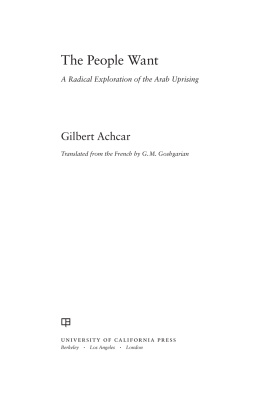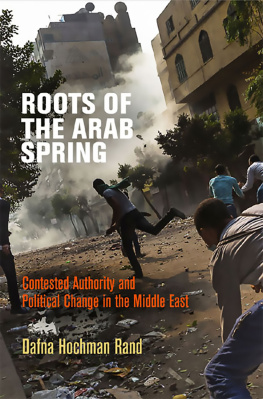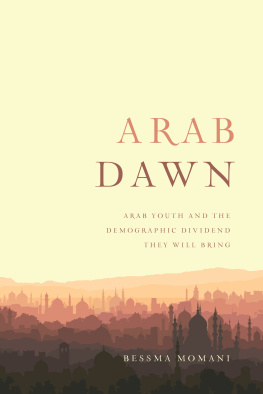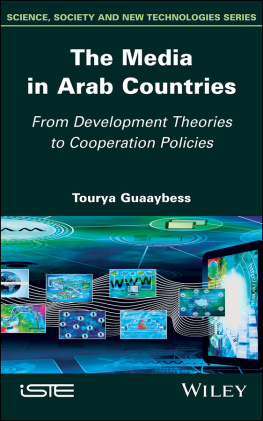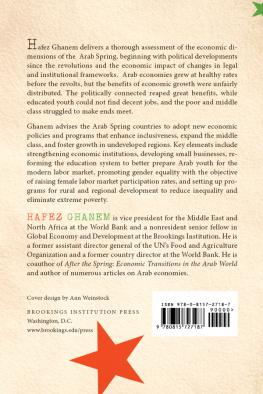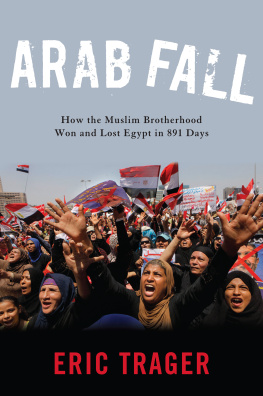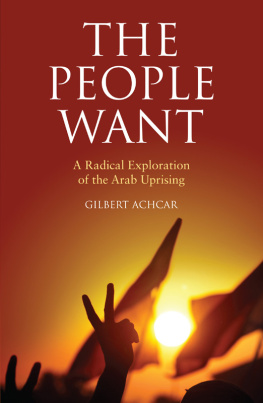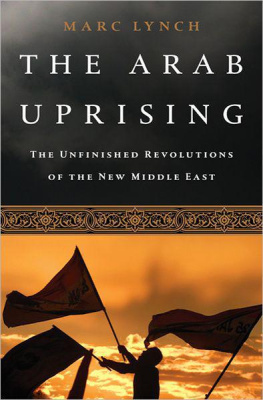
The People Want
The publisher gratefully acknowledges the generous support of the Joan Palevsky Literature in Translation Endowment Fund of the University of California Press Foundation.
The People Want
A Radical Exploration of the Arab Uprising
Gilbert Achcar
Translated from the French by G. M. Goshgarian

UNIVERSITY OF CALIFORNIA PRESS
BerkeleyLos AngelesLondon
University of California Press, one of the most distinguished university presses in the United States, enriches lives around the world by advancing scholarship in the humanities, social sciences, and natural sciences. Its activities are supported by the UC Press Foundation and by philanthropic contributions from individuals and institutions. For more information, visit www.ucpress.edu.
University of California Press
Berkeley and Los Angeles, California
University of California Press, Ltd.
London, England
2013 by The Regents of the University of California
Library of Congress Cataloging-in-Publication Data
Achcar, Gilbert.
The people want : a radical exploration of the Arab uprising / Gilbert Achcar.
pagescm
ISBN 978-0-520-27497-6 (hardback)
ISBN 978-0-520-28051-9 (pbk)
eISBN 9780520956544
1. Arab Spring, 2010 2. Protest movementsArab countriesHistory21st century. 3. RevolutionsArab countriesHistory21st century. 4. Arab countriesPolitics and government21st century. 5. Arab countriesEconomic conditions21st century. 6. YouthPolitical activityArab countries. 7. UnemploymentArab countries. 8. Information technologyPolitical aspectsArab countries. I. Title.
JQ1850.A91A3362013
909.097492708312dc232013014452
Manufactured in the United States of America
22 21 20 19 18 17 16 15 14 13
10 9 8 7 6 5 4 3 2 1
In keeping with a commitment to support environmentally responsible and sustainable printing practices, UC Press has printed this book on Rolland Enviro100, a 100% post-consumer fiber paper that is FSC certified, deinked, processed chlorine-free, and manufactured with renewable biogas energy. It is acid-free and EcoLogo certified.
Contents
Figures and Tables
FIGURES
TABLES
Acknowledgments
This book is the outcome of intensive work that started shortly after the beginning of the revolutionary wave engulfing the Arabic-speaking region. It is based, however, on the course on Problems of Development of the Middle East and North Africa that I have taught at the School of Oriental and African Studies (SOAS, University of London) since the academic year 20078. This means that I owe much to my institution, which offers an ideal environment and one of the richest libraries for the research on the region that is the object of this study. The students who attended my lectures and who will remember them when they read the following pages have contributed with their questions to forming the answers this book provides.
Yet scholarly teaching and research are but one of the sources of this work. My major debt is toward the great number of those whom I met and with whom I had a chance to discuss during my travels in different countries of the region over decades, and most particularly since the beginning of the uprising. I clearly cannot name them all. Four key stages in this experience occurred in 2011, when I was honored to be invited to take part in the Spring University of ATTAC Morocco in Casablanca, in April; the Socialist Days organized in Cairo after the uprising by the Egyptian Center for Socialist Studies, in May; the meeting of prominent members of the Syrian Opposition, many of whom came directly from Syria to the place near Stockholm where it was held, in October; and the festivities celebrating the first anniversary of the beginning of the uprising in Sidi Bouzid, the Tunisian town where it all started, in December. I thank here one more time the organizers of these meetings, as well as the team of the Haus der Kulturen der Welt in Berlin, which gave me the opportunity to take part in a gathering of persons involved in cultural activities in the Arab region in January 2012.
I am also grateful to all those who invited me to submit some of this books theses to the critical attention of audiences including people knowledgeable about the region in various academic institutionsin particular Henry Laurens at the Collge de France; Robert Wade at the London School of Economics; Rashid Khalidi and Bashir Abu-Manneh at Columbia University in New York; Joel Beinin at Stanford University; Ronit Lentin at Trinity College in Dublin; Haideh Moghissi and Saeed Rahnema at York University in Toronto; Farid al-Alibi at the University of Kairouan, Tunisia; Tullo Vigevani at the Universidade Estadual Paulista (UNESP) in So Paulo; and the Brazilian National Social Science Postgraduate and Research Association (ANPOCS) at its annual convention in Caxambu.
The friends whose names follow have read the manuscript of this book in part or in whole and given me the benefit of their comments in finalizing it: Henry Bernstein, Ray Bush, Franck Mermier, Saleh Mosbah, Alfredo Saad-Filho, Fawwaz Traboulsi, and Lisa Wedeen. Very acute remarks by Omar El Shafei, who translated this book into Arabic, were most useful. My collaboration for the second time with Geoff Michael Goshgarian, who translated this book into English most elegantly after my previous one, The Arabs and the Holocaust , was equally an opportunity for useful exchanges between us. I beg those whom I failed to mention in these acknowledgments to excuse me. None of the abovementioned persons can in any way be held responsible for the theses of this book and the errors that it may include.
Preliminary Notes
ON THE ARAB COUNTRIES AND THE MIDDLE EAST AND NORTH AFRICA (MENA)
In the following pages, Arab refers to the member states of the Arab League (with the exception of the Union of the Comoros, Djibouti, and Somalia). These countries are called Arab because Arabic is their main language of administration, communication, and instruction. Thus Arab and Arabic are, here, geopolitical and linguistic terms (whence also the occasional reference to the Arabic-speaking region); neither is in any sense an ethnic description. Non-Arab groups comprise a significant segment of the populations of these countries, notably the Amazigh in North Africa (Maghreb) and the Kurds in the Middle East (Mashriq). They have taken an active part in the uprisings in the region.
Several international institutions whose studies and statistics are copiously cited in the present book focus on a group of countries they call Middle East and North Africa (MENA or the MENA region). In addition to the countries identified above, MENA includes Iran. When data limited to the Arab states are lacking, data for the MENA region have been used.
All the figures published in this book are original; the sources of the data used in making them are indicated.
ON TRANSLITERATION OF ARABIC
The method adopted for the transcription of Arabic words and names in the Latin alphabet is a simplified version of the transliteration system in use in specialized literature; the aim is to make it easier for nonspecialists to read the text, while allowing the knowledgeable to recognize the original Arabic. Special characters and diacritical marks have been avoided, except for the inverted apostrophe representing the Arabic letter ayn . The common spellings of the names of the best-known individuals have been retained. Finally, when Arabs have published in European languages, their own transliteration of their names in Latin letters has been respected, as has, in the citations, the transliteration of Arabic names in the form in which it occurs in the original.
Next page
